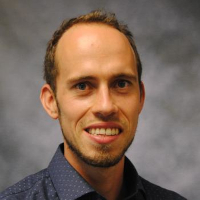
- This event has passed.
Math Dept Colloquium: Claus Kadelka (Iowa State University, Mathematics)
November 13, 2024 @ 4:05 pm - 4:55 pm

Including human behavior in infectious disease models
The COVID-19 pandemic has revealed the good and the bad of infectious disease models. While a well-developed model provides invaluable insights needed to understand and combat the pandemic, many models suffer from imperfect or simplistic assumptions that result in inaccurate or even completely wrong predictions.
In this talk, I will present several infectious disease models my group has developed since the beginning of the COVID-19 pandemic, using both classical differential equations as well as individual-based network models. All presented models incorporate certain aspects of human behavior (e.g., rates of mask wearing or vaccine uptake that depend on age, education, etc.) and social processes (e.g., homophily in social interaction patterns). A particular focus will be on heterogeneous mixing patterns. People with similar characteristics are more likely to interact, a phenomenon called assortative mixing or homophily. Empirical age-stratified social contact matrices have been derived by extensive survey work. We lack however similar empirical studies that provide social contact matrices for a population stratified by attributes beyond age, such as gender, sexual orientation, or ethnicity. Accounting for heterogeneities with respect to these attributes can have a profound effect on infectious disease model dynamics. I will present a new method, which uses linear algebra and non-linear optimization, to expand a given contact matrix to populations stratified by binary attributes with a known level of homophily and a known population-wide prevalence. As an example, I will show how accounting for ethnic homophily in the United States can give rise to interesting and non-trivial trade-offs that should be taken into consideration when developing prioritization strategies for future mass vaccine rollouts.
Keywords: homophily, heterogeneous mixing, SIR-model, mathematical epidemiology, network models
References:
1) McCombs, A., & Kadelka, C. (2020). A model-based evaluation of the efficacy of COVID-19 social distancing, testing and hospital triage policies. PLoS Computational Biology, 16(10), e1008388.
2) Islam, M. R., Oraby, T., McCombs, A., Chowdhury, M. M., Al-Mamun, M., Tyshenko, M. G., & Kadelka, C. (2021). Evaluation of the United States COVID-19 vaccine allocation strategy. PloS one, 16(11), e0259700.
3) Kadelka, C., & McCombs, A. (2021). Effect of homophily and correlation of beliefs on COVID-19 and general infectious disease outbreaks. PloS one, 16(12), e0260973.
4) Kadelka, C., Islam, M. R., McCombs, A., Alston, J., & Morton, N. (2022). Ethnic homophily affects vaccine prioritization strategies. Journal of Theoretical Biology, 555, 111295.
5) Kadelka, C. (2023). Projecting social contact matrices to populations stratified by binary attributes with known homophily. Mathematical Biosciences and Engineering, 20(2), 3282-3300.